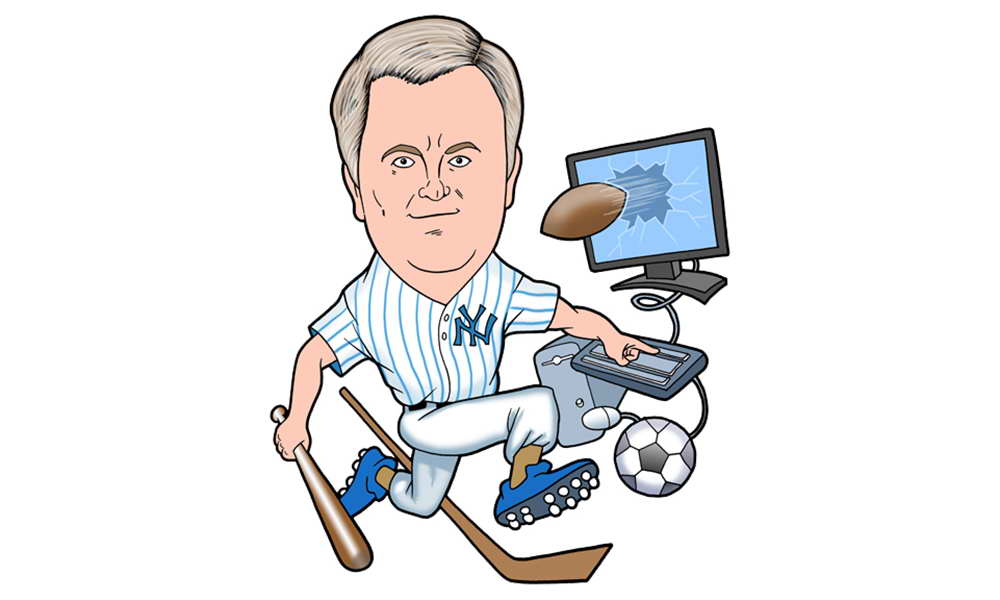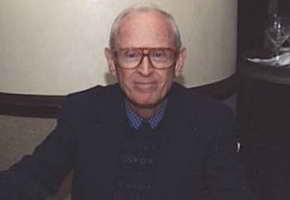In the second part of Ray Robinson’s interview with The Marist Poll’s John Sparks, Sports Author Ray Robinson addresses the current steroid scandal and the views fans have of the players off the field.
John Sparks
The steroid scandals have dominated the headlines. Do you think players like Barry Bonds, Mark McGwire, Roger Clemens, and Alex Rodriguez even, and others who have been implicated, do you think these folks will be elected…
Ray Robinson
Well you use the word implicated. You mean they’ve allegedly been implicated.
John Sparks
Right. Do you think these folks, because of these allegations, should be elected to the Hall of Fame?
Ray Robinson
I think that that’s a mixed bag. I have the feeling that the — to tell you the truth, that Barry Bonds, who was a great player even before supposedly getting mixed up in steroids, probably would’ve merited being in the Hall of Fame even before he started hitting home runs like bushels of apples. I think it seems to me that recently Mark McGwire, who was always liked by the press, is making noises now that indicate that maybe he’s coming out of his bunker and he would like to be considered for the Hall of Fame. In the long run, I don’t know. My guess is as good as any other people who are equally poorly informed. I would imagine maybe some of these guys might get in. I don’t know. It’s a tough call. It’s a tough call.
John Sparks
Another tough call is whether their record should stand. Surely you have an opinion about that.
Ray Robinson
Oh, of course, and I think most people who follow the game do. I think that ultimately the record book should actually be broken down by era, and in that way you can judge a player by the era he was in. In other words, the Dead Ball Era, the Higher Average Era in the 1930s perhaps, then believe it or not, call it the Steroid Era, and put the statistics in the book in that era, and people can form their own conclusions. I mean this is not an original idea with me. I’ve heard it from very – – people with a good deal of expertise about baseball that the record book should be divided into eras, and that’s not a bad idea. Then you can make that judgment based on the era.
John Sparks
Let’s talk about the steroid era. Who do you think bears a responsibility for the use of the steroids? Is it the players, the union, the managers, the commissioner?
Ray Robinson
Well placing blame, it’s like trying to place the blame for what’s going on in this country with the economy. I mean you know people who really… I mean most people don’t even understand what’s going on, but when you try to place the blame… I see some idiots who are even blaming Barack Obama for the current economy, that sort of thing. But come back to your baseball question, I don’t know. I think if this stuff is available, it’s quite clear that players would take it because it was available, so who can you blame for that other than the athletes who are taking it? I mean nobody was holding a gun to their head. I think they took it because they didn’t want to be left behind. Isn’t that a feeling of a lot of people? They didn’t want to be placed in an – – in a bad – – I’m sorry, in a bad competitive position with other players. They saw one other guy hitting a lot of home runs, they didn’t want left behind. Same way with some pitchers who presume they were on steroids. So the business of the blame, I think there’s enough blame to go around; but you know, I’m not wise enough to say who — who should be blamed the most.
John Sparks
I think there have always been problems off the field or even in other eras with stimulants. Duke Snider told me one time, “They pop greenies in the clubhouse over…”
Ray Robinson
Of course they did, and they were distributed… they were distributed in the clubhouse. I know Major League players who’ve told me that, very reputable players. No, they were distributed. But my feeling, or at least my recollection is, at the time, I don’t believe these things were legal or were they?
John Sparks
I don’t recall.
Ray Robinson
You’re talking mainly about amphetamines.
John Sparks
Right. Did players of those earlier days of the game, did they teach kids mostly good things or bad things do you think?
Ray Robinson
Well, you’re talking about what era?
John Sparks
Well, let’s take the era of Ruth and Gehrig.
Ray Robinson
Well, don’t forget there was a lot of misbehavior by players in those years, heavy drinking, perhaps even more so than now. I mean Babe Ruth was a tremendously heavy drinking guy. But you know, the press in those years didn’t report these things. We know in retrospect about the heavy drinking among a lot of players. For instance, I was once engaged in doing a magazine article about 40-50 years ago taking the worst team a manager would ever want to manage, actually picking one, and it was based on 10 alcoholics, which I knew about after the fact. In other words, when a lot of… for instance, you remember a player named Hack Wilson who played for the Chicago Cubs?
John Sparks
Sure.
Ray Robinson
Well Hack Wilson was a falling down drunk, you know, but most people who followed the game in those years were not aware of that because the press didn’t publish these facts, and one of the reasons was a lot of them – – the sportswriters and baseball writers — were very close to the players. They traveled with them on buses. They traveled with them on trains. They played cards with them. They played pool with them, et cetera, and some of them even roomed with players. Therefore, they didn’t tell tales out of school. Today you pick up a newspaper, and you know about the private life of ballplayers you don’t even want to know about. That’s the difference.
John Sparks
And because it’s different today, and I don’t know whether you would put the onus on the writers, the broadcasters, or the players, but do you think that the players and what we read about them and what we know about them today teach kids mostly good or bad things?
Ray Robinson
That’s an individual case thing. I’m sure there are many players today who are very valuable worthwhile human beings and a lot of them make a lot of money, whether it’s under pressure or not I don’t know… do good things, give money to various charities that might be a favorite. I noticed the other day Carlos Beltrán gave a lot of money to some big Latino charity in his home country, and there are others like that who are very, very generous, whether it’s a personal impetus or whether it’s the public relations thing, I don’t know. But many of these men that you don’t read too much about because gossip columns aren’t going to tell you that so and so is very generous, that’s not what they like people to hear. You know I’d say that many players, they do very worthwhile things. I mean it’s a bum rap to think that they’re… all have been — all of these guys are in it just for a lot of money. I think some of them do spread some of the money around in answer to the question. And don’t forget, in the old days when Babe Ruth made the most money in baseball: 80, 90, 100-thousand bucks–today some of these players make that in one trip to the plate.
John Sparks
Ray, finally, what’s more important to you, a ballplayer’s talent or his character?
Ray Robinson
Well, if a player has talent and character, that’s a perfect combination. That’s a perfect combination. I mean I don’t think many people are going to be willing to judge a player on his character if he’s a .150 hitter. They might say, “Nice guy. Doesn’t belong in the Majors,” you know. I mean, I’d like to feel that a guy who plays in the Major Leagues today is a decent citizen, a decent human being. Not all of them are, but that’s the same way with any profession, is it not? All politicians are not decent human begins, so I mean, why judge players on another level? I mean, they can’t all be generous with charities. They can’t all be intellectuals. They can’t all be well informed, et cetera, et cetera. They can’t all be decent guys, but I… as far as I’m concerned, I would love to feel that if there’s a player I like and like his talent, I’d like to feel privately within myself that he’s a good person, that’s he a man of character, but I wouldn’t always bet on it.
John Sparks
I hear you. Ray, I’ve got plenty of material. Is there anything else that you’d like to add on any of these areas that we’ve been talking with?
Ray Robinson
Well, I — a personal observation about the depression era, and this is sort of funny in a way, you know one of the things when the attendance was plummeting and the baseball economy was a disaster in the Great Depression, owners of many clubs actually considered having balls hit in the stands given back to the ball club. They actually considered doing that. And today, as you may be aware, you go to a lot of games, players actually sometime — actually take balls and throw them into the stands to give them to the fans. That’s one indication of a change of times. Just another little observation, by the way, about the depression, the Great Depression: you know, going back to that time period I was just a little kid, and I remember, and this is just – – this is aside from baseball perhaps, is that veterans of World War I principally out of work, out of luck, out of money, would stand on street corners in the city selling apples for a nickel. A nickel! And I actually saw some of these poor characters spit on the apples to shine them to make them more appealing for sales. I actually saw that! That’s the Great Depression. I hope we’re not headed for something like that.
John Sparks
I hope not either. I really appreciate your time this afternoon. I will be back in touch, and it’s always a pleasure talking with you.
Ray Robinson
Thank you very much. I appreciate it.
** The views and opinions expressed in this and other interviews found on this site are expressly those of the speakers or authors and do not necessarily reflect the views of The Marist Poll.
Additional Resources About Hack Wilson
Fouled Away: The Baseball Tragedy of Hack Wilson by Clifton Blue Parker


